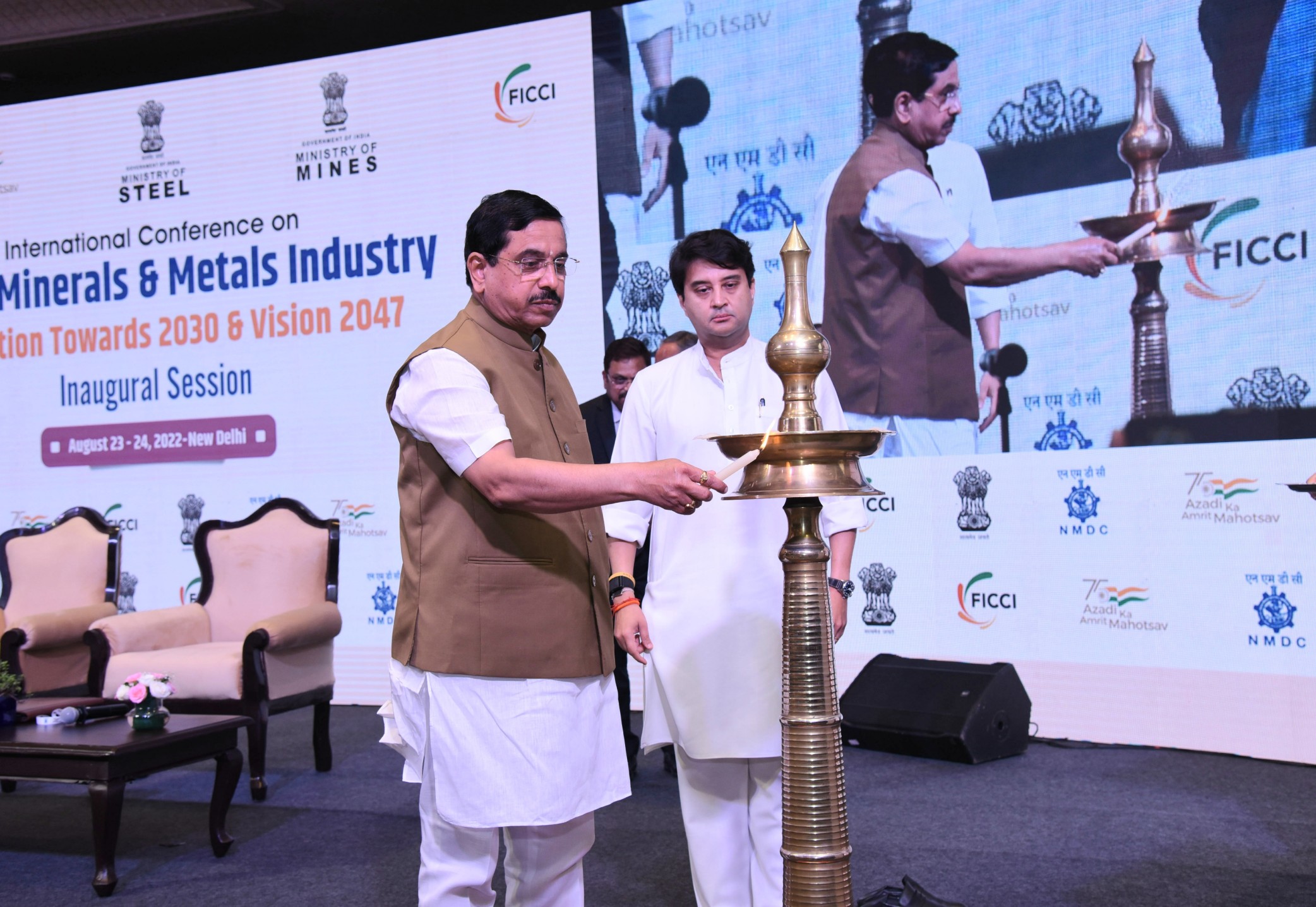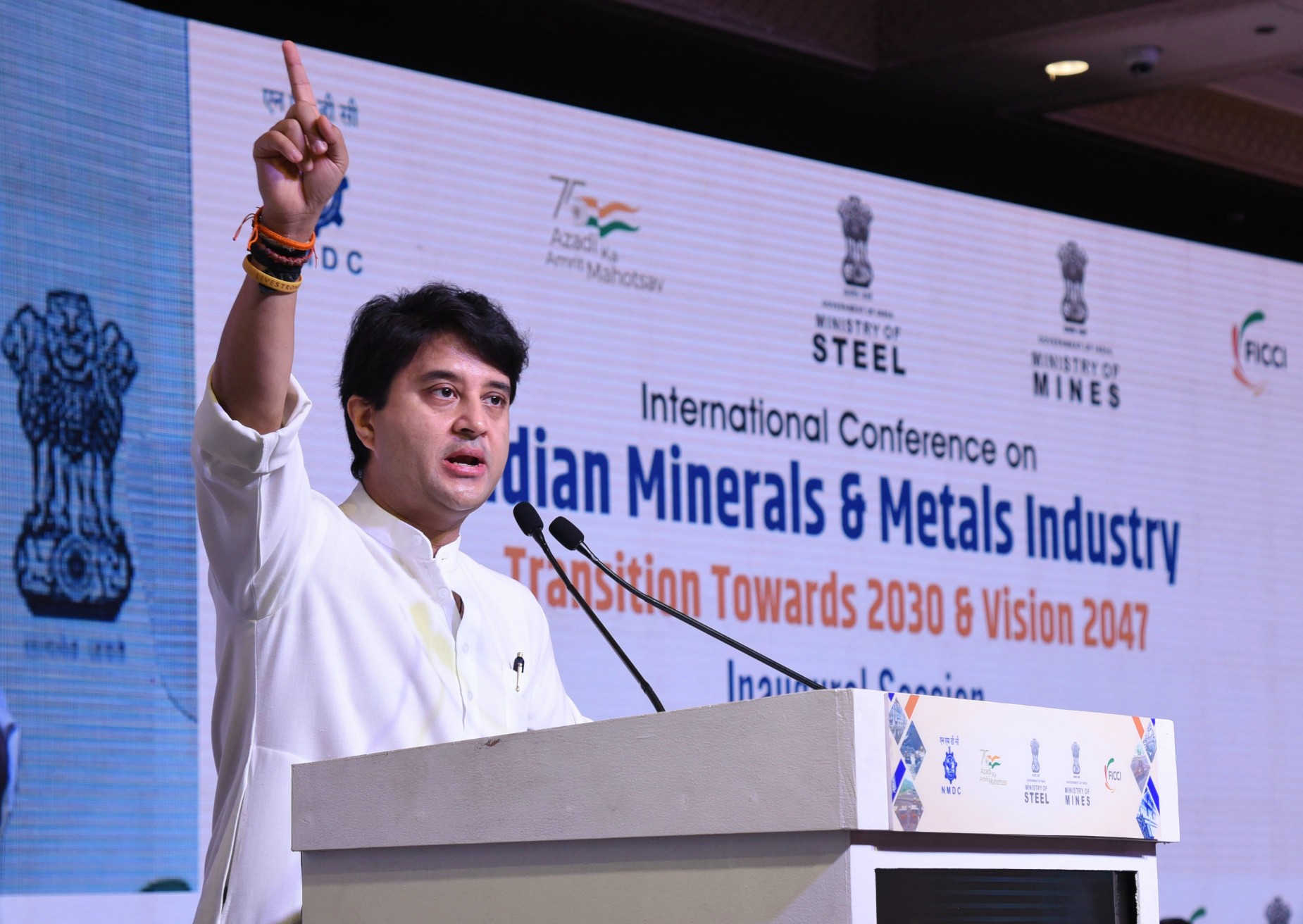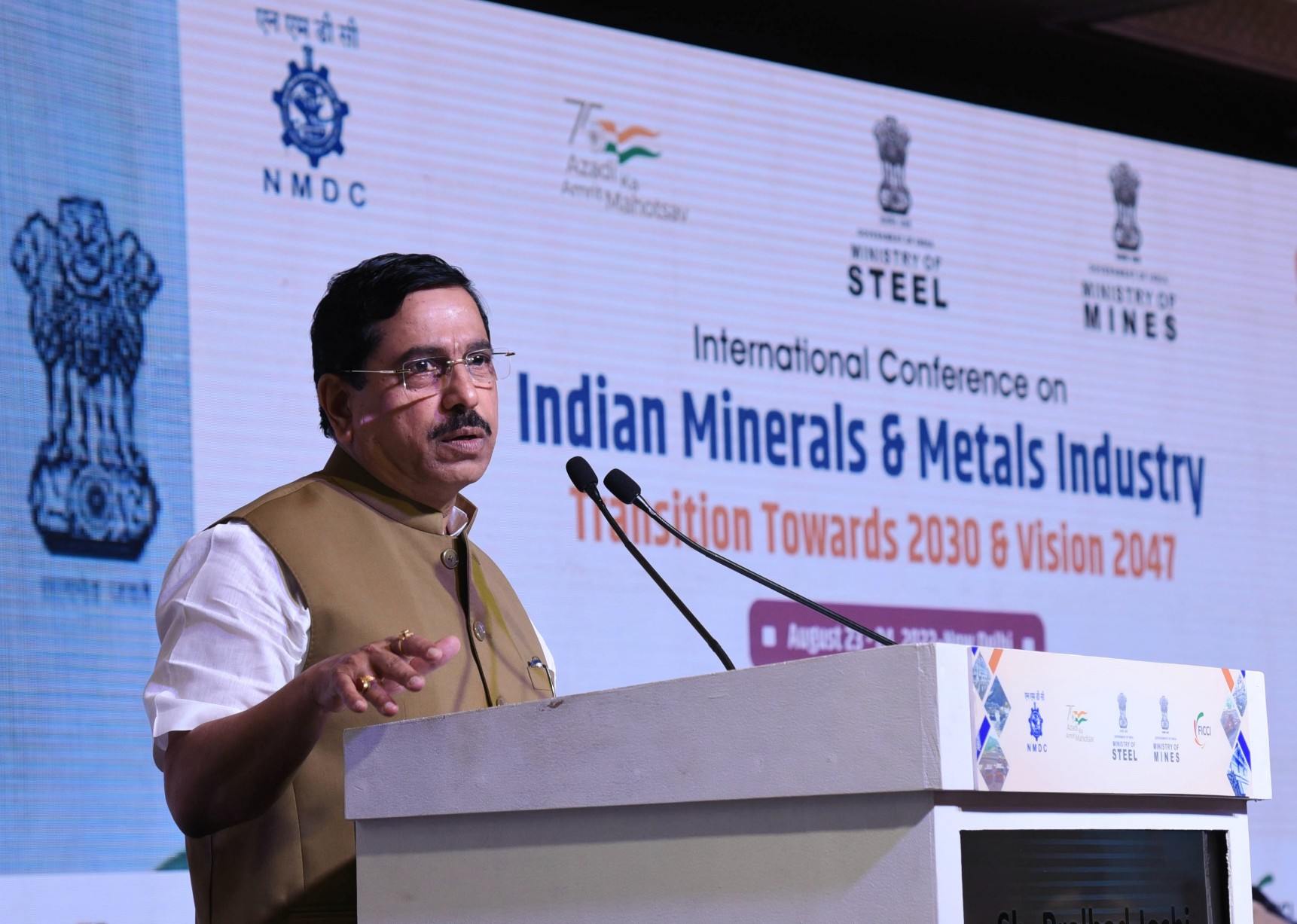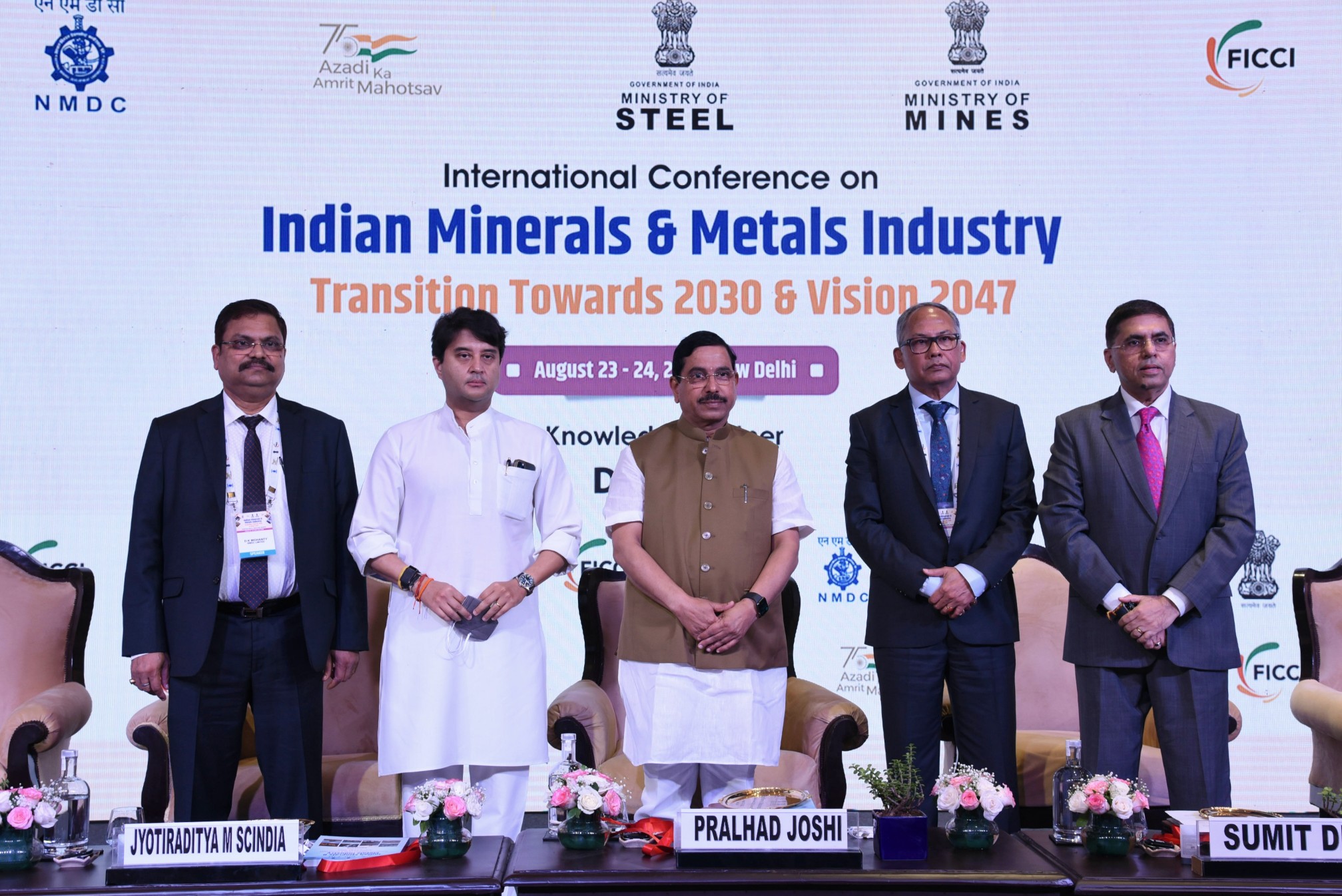Union Minister of Civil Aviation and Steel, Shri Jyotiraditya M. Scindia today called upon India’s mines and mineral industry to reduce carbon emission by 30–40 per cent by the year 2030 to enable India make an impact globally for its growth, expansion and exports. Addressing the two-day conference ‘Indian Minerals & Metals Industry: Transition Towards 2030 & Vision 2047’, organized in New Delhi by NMDC in association with FICCI.

Shri Scindia said, there can be no better time for businesses to pledge to cut carbon emissions by 30–40% by 2030 when India is transitioning from Amrit Kaal to Shatabdi Kaal. Under Prime Minister Shri Narendra Modi’s direction, the Atmanirbhar Bharat vision is already demonstrating its extensive impact across numerous industries. India has been a superpower on the global vistas throughout this time, and industries must align with the progressive vision of the government so that India stands on its strength when we celebrate our centenary year in 2047. The government has established itself as a forward-thinking collaborator with businesses to create India’s new economic growth narrative. Unprecedented reforms in the mining and steel industries over the past eight years have drawn significant investment. The main factor contributing to economic, capital, and infrastructure expansion worldwide is steel.

Shri Scindia added, “India’s strength resides in its capacity for consumption, which has transformed the country from being a net importer to a net exporter of steel. Steel usage in India climbed from 57.8 kg in 2013–14 to 77 kg in 2022 and is predicted to reach 220 kg by 2047. Henceforth, India has gotten much stronger in terms of steel output. In addition to this, India has increased its annual production by 50% from 80 million tonnes in 2013–14 to 121 million tonnes this year, making it another significant milestone for the industry. Moreover, India’s influence may be seen in the fact that it rose from being ranked No. 4 to No. 2 globally. We have set the target to produce 300 Million Ton Steel per annum up to the year 2030. To achieve this goal we should focus on new Technologies and Innovation. To make the industry sustainable and align with India’s net zero targets, we need to gradually move towards decarbonisation of the sector.

In the Inaugural address, Union Minister of Mines, Coal and Parliamentary Affairs, Shri Prahlad Joshi said, “The Government has introduced a revenue sharing model as per which 50 per cent rebate is entailed on revenue share on early production of minerals”. In 2021, MMDR Act was amended to allow auction for mining lease of limestone, iron ore and bauxite blocks having deposits at G3 level of exploration instead of earlier mandated G2 level exploration. Further, auction for composite license for all minerals allowed at G4 level of exploration instead of earlier mandated G3 level exploration. A total 190 blocks of various major minerals have been successfully auctioned in the last 7 years. In present fiscal, the government has auctioned 36 mineral blocks whereas in the last fiscal the total revenue accrued from auctioned mines is more than Rs. 25,170 Cr. The mineral and metals industry will need to adopt sustainable ways and in order to bring sustainability, it is imperative for the Indian mineral and metals sector to adopt best practices available globally for increasing productivity and efficiency.

Shri Sumit Deb, Chairman–Cum-Managing Director, NMDC Ltd in his remarks said that the vision of NMDC reverberates with the vision of National Steel policy as it aims to augment annual production capacity of iron-ore to 67M tons by 2025 and 100M tons by 2030,” he added.
Shri Sanjiv Mehta, President, FICCI stated that the mines and minerals play a key role in industrialization of an economy. “It is vital for our country to create a strategy for critical minerals and rare earth security. Reducing the supply chain and logistics cost by improving the infrastructure and enhancing efficiencies in the entire value chain would be essential to make our industries globally competitive,” he added.
Leading industrialists, policy makers, world renowned associations from the steel, minerals and mining industry are taking part in the two-day conference.
***
AKN/SK
(Release ID: 1853991)
Visitor Counter : 467

